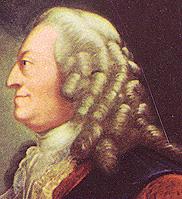 IMPERIAL?
IMPERIAL?Today on MSNBC, on the Imus in the Morning radio show, Newsweek reporter and pundit, Jonathan Alter, discussed what many are calling the "imperial presidency, " a phrase originated by Arthur Schlessinger.
The Newsweek magazine's January 9 issue features an article entitled "Full Speed Ahead," by Evan Thomas and Daniel Klaidman. Thomas appeared on "Meet the Press" New Year's Day. Heading the story is a great Newsweek photo , with the caption reads, "President Bush with Vice President Cheney in the Presidential Emergency Operations Center on September 11, 2001."
The heart of the question centers on the now often used blogger phrase to describe our current president, "King George." To quote from the Newsweek article,
Only after the crisis ebbs does the debate begin over the proper means and ends,This DailyKos discussion "Was Bush Wiretapping the Kerry Campaign?," a short post and 353 (current count) comments, illustrates why so many of us on the left are worried. The thread itself is often painful and hilarious, as usual with Kossacks. But this is not just a blogger or an academic question. There is so much opportunity for King's mischief that thoughtful people just cannot resist speculation.
and by then the people and their representatives are often shocked to find what the president has done in the name of protecting them. More than four years after September 11, America finds itself debating some of the oldest issues in our history: how to balance liberty and security, how much power we should cede to the White House and whether what the historian Arthur Schlesinger Jr. dubbed "The Imperial Presidency" amid Watergate is a good thing, a bad thing or something in between. That the war on terror is unconventional and seemingly endless adds to the difficulty and raises the stakes.
Kos makes a good point with this quote, "Imperial presidency" monicker unfair to emperors," on Steve Chapman's editorial in the Chicago Tribune.
The concept of an imperial presidency started rather early in the Bush administration. Bruce Shapiro, wrote an article for Salon.com called, "Restoring the Imperial Presidency," on June 17, 2003. It is worth a click just to see an old 1975 BW photo of Cheney and Rumsfeld at a news conference at (their) Nixon Whitehouse. To quote from this rather prescient story,
The Bush administration rivals the Nixon White House when it comes to secrecy
and unchecked power, with John Ashcroft as our modern-day John Mitchell.
- - - - - - - - - -By Bruce Shapiro
June 17, 2002
They are not exactly young, these two men in the photograph, but they are trying for rakish in a '70s way -- modified Elvis sideburns, hair falling below the ear -- pushing outward the boundaries of hipness in a Republican White House.
Recently I found myself contemplating this photo, taken shortly after the Watergate scandal forced President Nixon from office. The two would-be hipsters -- Donald Rumsfeld and Dick Cheney -- were aides to the new president, Gerald Ford. At that time Rumsfeld and Cheney were persuading Ford to veto one of the most important Watergate-inspired reforms, an enhanced Freedom of Information Act, designed to guarantee public and media scrutiny of the FBI and other agencies. FOIA, the two aides warned, would take too much power from the executive branch. Ford indeed vetoed the bill, but Congress overrode the veto and the FOIA became the law of the land -- at least until last October, when Attorney General John Ashcroft fulfilled Cheney and Rumsfeld's three-decade-old wish by pledging to fight any FOIA request that comes over the transom.
With the political aftershocks of Sept. 11 only now beginning to be felt in Washington, it's especially important to recall the real lessons of Watergate. Thirty years on, it is easy to forget that "Watergate" was really misleading shorthand: It was shorthand not only for the 1972 break-in at Democratic National Committee headquarters and Nixon's subsequent coverup of campaign shenanigans, but also for a vast array of domestic spying and other executive-branch abuses, which the Nixon crew perfected but did not invent.
It is fashionable now to blame Watergate on Nixon's paranoia and rogue personality. But the crimes of Watergate grew directly from the kind of unchecked presidential powers now sought by the Bush administration both at home and abroad. FBI spying on political rallies and religious communities? The White House plumbers practiced their tradecraft breaking into the psychiatric records of dissident Defense department analyst Daniel Ellsberg. The "enemies list" grew from FBI director J. Edgar Hoover's decades of spying on religious, civil rights and peace groups.
Maureen Dowd's (unfortunately Times Select -I don't have the money) column today is blistering about this question. Headlined, "Stewing since the Ford years: Dick Cheney and Donald Russfeld have produced the most pumped-up executive branch ever seen." I quote from my own paper,
We start the New Year with the same old fear: Dick Cheney. . . Checks, balances,
warrants, civil liberties--they're all so 20th century. Historians must now regard the light transitional tenure of Gerald Ford as the Petri dish of this darkly transformational presidency.Consider this: When Vice President Nelson Rockefeller, supported by Ford, pushed a plan to have the government develop alternative sources of energy and reduce our dependence on oil and Saudi Arabia, guess who helped scotch it?
Dick Cheney. Then and now, the man is a menace.
I reiterate what I said in my post yesterday. The time has come to investigate. "It was gratifying to know that legislators, our elected watchdogs, were very concerned about the practice of warrentless domestic surveillance from very early on. CNN reported on 12/19/05 that there are some congressional leaders who are interested in investigating the NSA spying program."
Tags: Bush Cheney domestic surveillance NSA Imperial Presidency
No comments:
Post a Comment